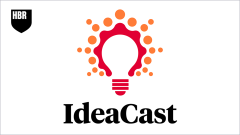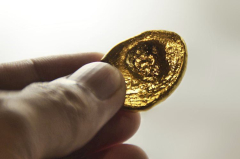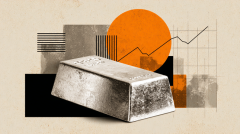It might seem risky to base decisions as a leader on your gut feeling or intuition. But Laura Huang’s research has found that intuition isn’t just an arbitrary thought or emotion; that it’s the culmination of years of data and observation, and that it is worth listening to. The Northeastern University professor shares what she’s learned about intuition, how we can recognize it and tap into it, and why it is a strength for business leaders. She’s the author of the book You Already Know: The Science of Mastering Your Intuition. She also wrote the HBR article “How CEOs Hone and Harness Their Intuition.”
ADI IGNATIUS: I am Adi Ignatius.
ALISON BEARD: I’m Alison Beard, and this is the HBR IdeaCast.
ADI IGNATIUS: All right, so Alison, when it comes to making decisions, do you consider yourself data-driven or do you just kind of go with your gut?
ALISON BEARD: A hundred percent my gut, and I know that’s a very old-school way of doing things, but when I’m deciding on an article to commission, or a guest I want to have on this show, or a magazine cover, I definitely think to myself, “Does this feel right? Do I know it’s going to work in my heart of hearts?” And I trust that instinct.
ADI IGNATIUS: Well, I interviewed Barry Diller on this show not long ago, and he says he makes every decision by his gut, and if you follow any other path, you’re going to make a mistake. So I mean, to be honest, I set up kind of a false dichotomy with that question between using data and information on the one hand versus using intuition and emotion. So today we’re going to talk about intuition and following your gut, but our guest, Laura Huang, doesn’t make that kind of hard and fast distinction. She says that, “Actually when we’re making a decision with intuition, it is a combination of, it is informed by our previous experience, the external data that we’ve gathered, even if we don’t realize it at the time. So there is data even inside what feels like gut decisions.”
ALISON BEARD: That does make me feel better because I think we live in this age of data and analytics, and sometimes I feel bad that I’m not looking at the spreadsheets to make my decisions. But I think that what you’re saying makes sense. I am using decades of experience in journalism, as you do as well, to make those calls on what we think is good editorial content.
ADI IGNATIUS: Yeah, and look, maybe that’s the secret of success for people in leadership positions, that they have an ability to rely on their gut, but that is informed by years of experience, and skills, and knowledge. So today we’re going to talk about how that works. There is some real science here today. It’s not just a wishy-washy concept.
We will be speaking with Laura Huang, who’s a professor and associate dean at Northeastern University. She wrote the book, You Already Know: The Science of Mastering Your Intuition. Here is our conversation.
All right, so I want to ask, you’re deep in the field of studying what it means to rely on your instincts, to have a gut feel for something. What made you decide even to go into that field?
LAURA HUANG: I came from a very technical background. I was an engineer, was designing lots of new products. And what I realized very quickly on was that it was never the best product that won. There was always other factors that led to whether or not that product was being accepted, whether it was being adopted, whether it was being put to the next level of testing, all sorts of things along the way. There were all these subtle cues, and factors, and perceptions, and even intuitions that dictated whether something went forward or not. Because I came from a technical background, I thought that there was a way that we could quantify that. And so a lot of my earliest research was around how do we quantify the unquantifiable – something like our intuition or our gut feel?
ADI IGNATIUS: I know that one of the first bits of research you did was with early stage investors, I guess, who went with their gut. Talk about what you found in that.
LAURA HUANG: Yeah, so I found that a lot of times when I was asking investors, “Well, how did you decide to invest in XYZ company? Or how did you decide to pass on ABC company?” That 100% of the people I spoke with, they would talk about the data, the financials, the hard sort of factors, but they would also talk about their gut feel. They would start to say things like, “Yeah, and then I just had this feeling, I just knew that I had to invest in this person,” or, “I had this feeling that there was something that was off about this idea.” And so there was an element of that that was blended throughout any of the decisions that they were making.
I even had one investor, actually, when I was interviewing him, I said, “How do you make your decisions?” And he said, “Oh, I rub my tummy, I just rub my belly.” And so that kind of illustrates in some way that factor, that we have this gut feel around the decisions that we make.
ADI IGNATIUS: Now, obviously don’t try that at home. So you’re getting a sense of the role of the gut feel in making some of these decisions. It’s generally estimated that 75% of, let’s say VC investments never return a profit to their investors. Does that mean that three-quarters of these gut decisions are failures?
LAURA HUANG: So you’re correct in the sense that when investors are making decisions, there’s absolutely this portfolio strategy, that you can have 29 complete losses as long as you have one investment that’s returning a 30 x or a larger return. And so the reason why the gut feel was so interesting and was such a factor for these investors was that when I looked at the overall decisions, when investors used their data, the financials, and so on and so forth, that on the aggregate their 30 might be a little bit on the plus side, but when their gut feel kicked in, that’s when they were able to identify that extraordinary unicorn, that one that was going to be a 300 x return, or identifying the one that was going to be the complete dog and a complete loss. So said another way, if you think about baseball averages, if you use your gut feel, you’re going to be hitting those home runs. You might not have the highest batting average, but you’re going to hit much more of those home runs. And that’s sort of what they were going for.
ADI IGNATIUS: I’m interested in the methodology because people’s accounts of what they’ve done, what they’ve accomplished, sort of improve over time with the retelling. So if somebody makes what turned out to be the right decision, they may well say, “I had this gut feel,” even if they actually went through, I don’t know, a more conventional process. How do you factor that out, what people say versus maybe what actually happened?
LAURA HUANG: So if you’re going to study something like gut feel, if someone’s going to be studying gut feel and intuition, and trying to quantify what that is, the methodology is extremely important. So what I had to do was I had to really triangulate, I had to use a variety of different methods to really make sure that what I was studying was actually gut feel. So there was three big buckets that I would triangulate. The first was just interviews – thousands of interviews with individuals around what is their gut feel, what do they consider their gut feel, how do they make decisions, trying to take apart what that gut feel is Sometimes I didn’t even use the words gut feel, and I just asked them, “How did you make this decision,” trying to categorize and understand that. So then what I did was a content analysis of all of that. I would look at qualitatively, what kind of things are they saying, cluster analysis, all of that.
The second set of what I did was I did a bunch of field experiments where, for example, I would take business plans or pitches, and I would change a specific part of data. So I would say in one instance, “It’s the exact same company, but for one company it’s a $300 million market. For the other company, it’s a $3 million market.” I would experimentally test, give these investments to investors and say, “What are your opinions of this? Would you invest? How much would you invest,” and so on and so forth, so that I could compare different things. And so in one case, I would have an investor or an entrepreneur who elicited a very strong gut feel, and in one instance, someone who elicited a very weak gut feel. And I would take the same quotes that I used from the first set of studies and embed those there so I knew that they were, in fact gut feel.
And then the third set was just archival data where I collected pitches dating back to 2009. So everything from TechCrunch, Y Combinator, variety of different angel investment networks. And I’ve tested over, since 2009 to the present day, what were the gut feel that people had about them back when they were first starting? How strongly did they end up performing, which went bankrupt, which are now huge, massive IPO’d kind of startups, all of that kind of thing. So lots of things went into this.
ADI IGNATIUS: So some decisions are made truly by gut feel, some aren’t. What’s the value in breaking this all down?
LAURA HUANG: The first is that we misunderstand what gut feel actually is. So some of us tend to think that it’s like almost this mythical, mythical kind of superpower that we just tap into and that we just magically know. And other people are like, “Oh, no, no, it’s something that’s really biased. And you have to collect more data to understand.” So we all have a lay view of what gut feel actually is. And so the more that we can actually understand what gut feel actually is, the more we’re able to train it, and hone it, and harness it so that it’s something that becomes a tool. It’s something that becomes a compass for us to make our decisions and know that when we’re making those decisions that they’re going to be the accurate, trusted ones.
The question is often, what is gut feel? But it shouldn’t be what is gut feel? The question should be, who is gut feel? Because gut feel is you. And so when we understand that you could have a gut feel about something, and I could have a gut feel about the exact same decision, and they would be very, very different intuitions, and very, very different gut feels, but we would both be right because of who we are and how we’re bringing it forward. That starts to also muddle it a little bit. And so in my research career, I’ve constantly been trying to bring it back to the quantitative, bring it back to the science so that we can still have this very important concept that we understand both scientifically as well as personally.
ADI IGNATIUS: Does your research in some ways contrast with Daniel Kahneman’s ideas in Thinking, Fast and Slow? I mean, this is super simplified, but he have less confidence in our intuition and judgment than maybe you’re finding?
LAURA HUANG: Yeah. So that second category, what Danny Kahneman writes about is absolutely these shortcuts that our brains are taking, that we have these mental models that allow us to process information more quickly. And that’s absolutely part of what my research speaks to. But in this quantification process, what I find is that our gut feel is actually data plus experiences. So it’s this culminating factor. It takes into account all of our expertise, and our experiences, and our background, and our culture, even our trauma, all of our personal experiences added to the data that we’re being presented with, or that we see. And it’s this aggregate factor that allows us to make these decisions.
One of the reasons gut feel is so hard to define is because we’ve confused the different pieces of it, that there’s actually a process and an outcome. And the process is what I call the intuiting process. It’s this process that allows us to be integrating all of these different factors, this data, our personal experiences, and then at the end of the process there is an outcome, there is a gut feel outcome.
And sometimes we short circuit that process. And when we short circuit that process, we arrive at an answer that might not be reliable. But when we disentangle the fact that there is this intuiting process, which could be months, or years, or sometimes it could be seconds, the timing of that can be very fast or slow. And then there’s a gut feel outcome at the end. When we understand both those pieces and both those components, we can actually be tapping into it. We can be honing it, harnessing it, and training it to our benefit.
ADI IGNATIUS: And just to be clear, you’re saying that the gut feel based on, as you say, data on one’s experience that you’re honing along the way or throughout your career, that basically the gut feel is going to lead to a successful result, what more frequently than not? I mean, are you advocating for relying on your gut if you do it in the right way, because you will get better outcomes?
LAURA HUANG: When you use your gut feel for the right types of questions and the right types of problems, and you understand what is happening in this process, your gut feel will be correct 100% of the time, 100% of the time. So if you’re using it for things that are probabilistically deterministic, and you are jumping to some kind of conclusion, what I argue is that that’s not actually your gut feel. You think it is. It might be based on emotion, it might be based on something that you are sensing it might be based on, but it’s not actually that gut feel that we can trust and rely on, where your gut feel is not lying to you. Your gut feel doesn’t lie.
This is not something that’s linear. People can say, “How do I use my gut feel? What are the five steps that I need to take?” I can’t say to them, “Okay, step one, do this, step two, do this, step three, do this, step four, do this.” And that’s why it’s very difficult sometimes for us to understand scientifically, because we read things linearly, we try and understand things linearly. And yet the real power of gut feel is the fact that it’s not linear. It’s bringing together things that we might have remembered from when we are five years old, things that we learned when we were in our university days, and a piece of data that we encountered yesterday. We don’t process it linearly, even though there is a process and an outcome.
ADI IGNATIUS





